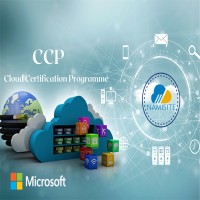Certification Target Audience
The AZ-100 Microsoft Azure Infrastructure and Deployment certification exam is geared towards Azure Administrators who manage cloud services that span storage, security, networking, and compute capabilities within the Microsoft Azure cloud. Exam candidates should have a deep understanding of each service across the full IT lifecyle, and take requests for infrastructure services, applications, and environments. They also make recommendations on services to use for optimal performance and scale, as well as provision, size, monitor, and adjust resources as appropriate.
When taking this exam, it’s recommended that candidates are proficient in the following tools:
- PowerShell
- Command-Line Interface (CLI)
Candidates should also have at least a basic familiarity with the following areas related to Microsoft Azure:
- Azure Portal
- ARM Templates
- Operating Systems
- Virtualization
- Cloud Infrastructure
- Storage Structures
- Networking
Skills Measured
Here’s a very high level list of the skills and objectives measured on this AZ-100 Microsoft Azure Infrastructure and Deployment certification exam. The percentages next to each objective area represents the number of questions on the exam in that objective area.
Manage Azure subscriptions and resources (15-20%)
- Manage Azure subscriptions
- May include but not limited to: Assign administrator permissions; configure cost center quotas and tagging; configure subscription policies
- Analyze resource utilization and consumption
- May include but not limited to: Configure diagnostic settings on resources; create baseline for resources; create and rest alerts; analyze alerts across subscription; analyze metrics across subscription; create action groups; monitor for unused resources; monitor spend; report on spend; utilize Log Search query functions; view alerts in Log Analytics
- Manage resource groups
- May include but not limited to: Allocate resource policies; configure resource locks; configure resource policies; implement and set tagging on resource groups; move resources across resource groups; remove resource groups
Implement and manage storage (20-25%)
- Create and configure storage accounts
- May include but not limited to: Configure network access to the storage account; create and configure storage account; generate shared access signature; install and use Azure Storage Explorer; manage access keys; monitor activity log by using Log Analytics; implement Azure storage replication
- Import and export data to Azure
- May include but not limited to: Create export from Azure job; create import into Azure job; configure and use Azure blob storage; configure Azure content delivery network (CDN) endpoints
- Configure Azure files
- May include but not limited to: Create Azure file share; create Azure File Sync service; create Azure sync group; troubleshoot Azure File Sync
- Implement Azure backup
- May include but not limited to: Configure and review backup reports; perform backup operation; create Recovery Services Vault; create and configure backup policy; perform a restore operation
Deploy and manage virtual machines (VMs) (20-25%)
- Create and configure a VM for Windows and Linux
- May include but not limited to: Configure high availability; configure monitoring, networking, storage, and virtual machine size; deploy and configure scale sets
- Automate deployment of VMs
- May include but not limited to: Modify Azure Resource Manager (ARM) template; configure location of new VMs; configure VHD template; deploy from template; save a deployment as an ARM template; deploy Windows and Linux VMs
- Manage Azure VM
- May include but not limited to: Add data discs; add network interfaces; automate configuration management by using PowerShell Desired State Configuration (DSC) and VM Agent by using custom script extensions; manage VM sizes; move VMs from one resource group to another; redeploy VMs
- Manage VM backups
- May include but not limited to: Configure VM backup; define backup policies; implement backup policies; perform VM restore
Configure and manage virtual networks (20-25%)
- Create connectivity between virtual networks
- May include but not limited to: Create and configure VNET peering; create and configure VNET to VNET; verify virtual network connectivity; create virtual network gateway
- Implement and manage virtual networking
- May include but not limited to: Configure private and public IP addresses, network routes, network interface, subnets, and virtual network
- Configure name resolution
- May include but not limited to: Configure Azure DNS; configure custom DNS settings; configure DNS zones
- Create and configure a Network Security Group (NSG)
- May include but not limited to: Create security rules; associate NSG to a subnet or network interface; identify required ports; evaluate effective security rules
Manage identities (15-20%)
- Manage Azure Active Directory (AD)
- May include but not limited to: Add custom domains; configure Azure AD Identity Protection, Azure AD Join, and Enterprise State Roaming; configure self-service password reset; implement conditional access policies; manage multiple directories; perform an access review
- Manage Azure AD objects (users, groups, and devices)
- May include but not limited to: Create users and groups; manage user and group properties; manage device settings; perform bulk user updates
- Implement and manage hybrid identities
- May include but not limited to: Install and configure Azure AD Connect; configure federation and single sign-on; manage Azure AD Connect; manage password sync and writeback
Azure L-100
- Brand: Microsoft
- Product Code: AZ-L100
- Availability: In Stock
-
₹ 55,000.00
Available Options
Related Products
CCP - Cloud Certification Programme
CCP - Cloud Certification ProgrammeSummaryCloud computing is one of the fastest-growing technology i..
₹ 15,999.00





